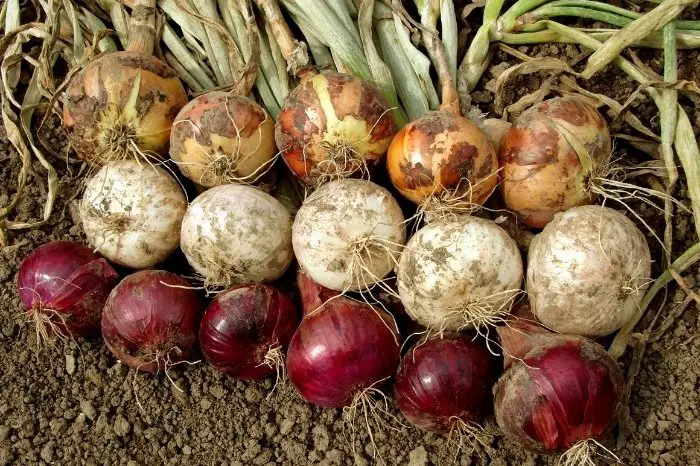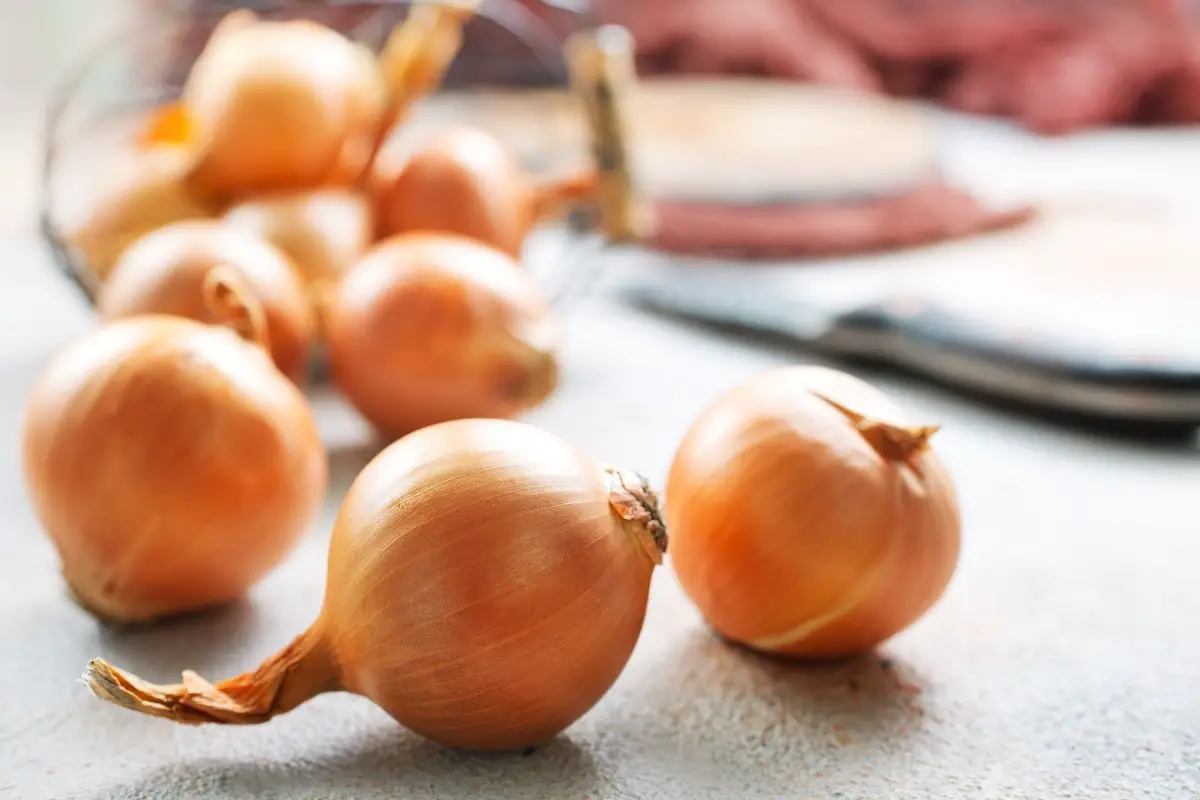Last Updated on July 17, 2022 by Cristina
In this article, we will look at the question is an onion a tuber or a vegetable and learn a few more interesting facts about this plant.
The word “tuber” comes from the Latin word “tubus” which means “calyx”. The calyx is the part of the flower that looks like a cup. It is actually the part of the flower that is responsible for the smell of the flower. This is called calyx scent. It is made up of very small cells. These cells are filled with chemicals that help to attract insects. Insects pollinate flowers by drinking nectar. When an insect drinks nectar, it gets a tiny bit of pollen as well. The pollen is carried back to the flower and when it is put into the flower’s ovary, it can fertilize the ovule. This is how a flower becomes a fruit or an eggplant.
The word “vegetable” comes from the Latin word “vegetare” which means “to grow”. This is because the roots of a plant are responsible for the growth of the plant. The leaves of a plant are also responsible for the growth of the plant.
So that said, is an onion a tuber or a vegetable? Let’s see below.
Is An Onion A Tuber Or Vegetable?
Let’s look at it this way: An onion has a root and leaves. Roots and leaves are responsible for the growth of a plant. But, they are not a part of the calyx scent, so we don’t call them a tuber. We call them a vegetable.
That said, onions are in the vegetable class more than they are in the tuber class. Tubers include sweet potatoes, arrow roots, potatoes, etc. Onions are always placed in the vegetable class whether in the market or garden.

Benefits Of Eating Onions
The benefits of onions have been proven for centuries. Onion is a natural spice that can be used to enhance your health and wellness. There are many reasons why you should start using onions in your daily diet. Health Benefits of Onions Eating onions provides many health benefits. Some of the health benefits include:
Boosts Your Immune System
An onion can help boost your immune system. If you are sick, eating onions will help strengthen your immune system.
Onions have been known to help lower blood pressure and prevent certain types of cancer. It is also a natural remedy for cold and flu.
Promotes Digestion – Is An Onion A Tuber
Eating onions helps promote digestion. If you feel bloated or constipated, try eating onions on a regular basis. Onions can help get rid of gas and bloating. They can also help clean out the digestive tract.
Prevents Diabetes
Eating onions help prevent diabetes. Diabetes is a serious condition that can be controlled by eating onions regularly. Onions are high in fiber and contain an enzyme called alliinase, which can help lower blood sugar levels.
8 Onion Seeds Variety Pack Heirloom, Non-GMO, Onion Seed Sets for Planting Indoors, Outdoors
In addition to that, onions contain natural anti-bacterial properties. Eating onions will help prevent bacteria from spreading and causing illness.
Reduces High Blood Pressure
Onions can help lower high blood pressure. This is due to the fact that they contain potassium which lowers blood pressure. They also contain folic acid which helps in preventing heart diseases and stroke.
Onions Can Also Help Reduce Cholesterol Levels
It has been proven that when you eat onions, it can help you lower your risk of having heart problems.
Protects Against Cancer – Is An Onion A Tuber
The health benefits of onions have also been proven against cancer. In a study conducted by the University of Maryland Medical Center, it was found that onions can help prevent cancer. According to the researchers, onions contain antioxidants which protect the cells from damage. The antioxidants help prevent cancerous cells from growing.
Protects Against Inflammation
Onions have been proven to help reduce inflammation. When you eat onions, it can help lower your chances of getting arthritis. It is also beneficial for those who suffer from inflammatory bowel disease. You should try to include onions in your diet as much as possible. This will help to prevent diseases such as cancer and heart problems.
In Conclusion – Is An Onion A Tuber Or A Vegetable?
Though onions grow underground like other tubers, it is a vegetable. It has been used for a long time and is considered to be healthy. The onion bulb grows in a cluster of leaves that are attached to a long stem. It is a small plant that does not grow too tall and has no flowers. The stems are usually about two inches long. Onions have many different kinds. They are classified as green, red, yellow, and white. They are usually planted in the ground in the autumn.
FAQ’s
Is an onion a bulb or tuber?
An onion is a member of the Allium genus, a large family of plants that includes garlic, leeks, and shallots. It is a perennial plant with a clump-forming habit, although some varieties may be grown as annuals. The onion has a bulb, which is the enlarged underground storage part of the plant. The onion leaves are called scapes. The onion roots are called rhizomes. Onion bulbs are used in cooking and for their medicinal properties.
Is onion a tuber or vegetable?
Onion is a tuber or root vegetable, not a true vegetable. Why do people call it a "bulb"? The name bulb is derived from the Latin word bulbus (meaning "seed-like"). Bulbs are roots of flowering plants that have thickened into an edible form.
Is onion a root or stem tuber?
Onion is a root. What is the difference between a bulb, a tuber, and a root? Bulbs, tubers, and roots are all types of plant parts that store food energy and nutrients. Bulbs are thickened underground stems of plants with swollen ends that grow in clusters. Tubs are fleshy, underground stems that grow in clusters. Roots are the underground stems of plants that anchor them to the soil and take in water and nutrients.
Is onions a tuber crop?
No, onions are a root vegetable. Onions are a member of the genus Allium, which includes garlic, shallots, leeks, chives, scallions, and spring onions. The genus Allium contains about 60 species, all of which are edible. Most onions have thick, white, or yellow bulbs, but some have smaller, brown, green, purple, or white bulbs.
Caroline is a gardener who loves to get down to the nitty–gritty of gardening. She proudly proclaims herself as a ‘dirt worshipper‘ and can often be found deep in the garden, covered in soil and singing to her plants. As a self–proclaimed ‘plant whisperer‘, Caroline believes that plants need love and attention just like any other living thing, and she loves to give them both. When she‘s not tending to her garden, you can often find her researching the latest gardening trends, or teaching others how to make their gardens thrive



